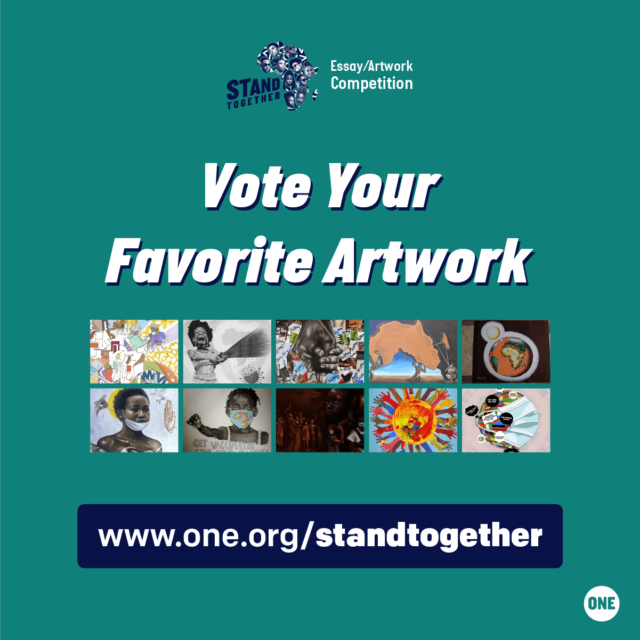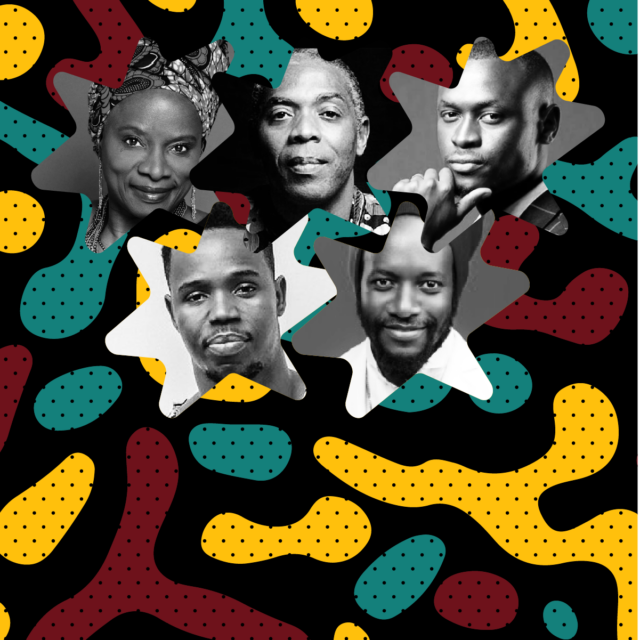ONE Champion Felix Brian Onyango shares why it’s important to raise up the voices of today’s youth.
International Youth Day on 12 August gives an opportunity to celebrate and bring to the forefront young peoples’ voices, actions, and initiatives, as well as their meaningful, universal, and equitable engagement. The theme of International Youth Day 2020 is “Youth Engagement for Global Action,” which aptly highlights the ways in which the engagement of young people at the local, national, and global levels are enriching national and multilateral institutions and processes, as well as providing lessons on how their representation and engagement in formal institutional politics can be significantly enhanced.
Despite structural and institutional barriers in the society, young people do lead – as individuals, activists, volunteers, leaders, and members of youth — led groups and networks. According to the African Leadership Institute report, “An Abundance of Young African Leaders but No Seat at the Table,” approximately 700,000 young Africans have already been exposed to some form of a selective leadership initiative, so the challenge now is to tap into these pools of young leaders.
The global youth population
The United Nations youth agenda is guided by the World Programme of Action for Youth (WPAY). WPAY defines youth as those persons between the ages of 15 and 24, the period of transition from childhood to adulthood, in which individuals gain independence and awareness of interdependence as members of a community.
Today, there are 1.2 billion young people aged 15 to 24 years, accounting for 16% of the global population. The active engagement of youth in sustainable development efforts is predominant to achieving sustainable, inclusive, and stable societies by 2030, and to averting the worst threats and challenges to sustainable development. Since the International Youth Year in 1985, the UN General Assembly has defined youth participation as comprising four components: economic participation, relating to work and development; political participation, relating to decision-making processes; social participation, relating to community involvement; and cultural participation, relating to the arts, cultural values, and expression.
The need for youth leadership in Africa
According to Brookings Institution’s Foresight Africa 2019 Report, most African leaders are 55 years old or older, with some as old as 75. This represents a significant gap between those deciding policy and those who have to weather its effects. At the parliamentary level, only 14% of members are under 40 years old. African parliamentary compositions reflect the global trend, wherein only 14.2% of members are under 40 years old.
With African countries on track to account for half of the world’s population growth and an exponential increase in the number of young people, the number of young parliamentarians should be higher. Even more so, youth need to take more places in presidencies, councils of ministers, parliament, national committees, corporate boardrooms, and civil society organizational teams.
Addressing youth concerns
According to a 2015 baseline study by the Centre for Multiparty Democracy Kenya titled “Youth in Political Party Participation in Kenya,” people aged between 18 and 34 are the largest sector of Kenya’s population. The youth represent the diversity of the Kenyan nation; addressing the challenges they face and unleashing their potential requires an understanding of their diverse life experiences. Building an evidence base of youth-specific data across a wide range of sectors assists policymakers in making targeted investments and designing effective policies and programmes for youth. Consequently, youth participation leads to better decisions and outcomes.
Many of the profound challenges faced by young people around the globe — poverty, armed conflict, climate change, violence, sexual and reproductive health and rights, substance abuse, and gender inequality — are subjects of widespread concern at the national and international levels. With the emergence of COVID-19 pandemic, youth in all regions of the world are having to deal with alarming unemployment and insecurity at work, greater family instability, and reductions in social protection programmes.
Empowering everyone
Real empowerment is achieved when young people are able to identify those issues of primary concern to them and to develop strategies, activities, networks, organizations, or campaigns through which to pursue their objectives. Many such initiatives throughout the world are supported and resourced by responsive establishments, through governments and NGOs. Through meaningful interventions anchored on youth engagement, the ONE Champions program for emerging leaders consists of young, vibrant, and committed volunteers to support ONE Africa’s advocacy work.
Thankfully, we’re beginning to see this on a national scale. The recent commitment by President Uhuru Kenyatta during the launch of General Unlimited partnership (GenU) in Kenya to appoint more young chief administrative secretaries to the Cabinet to have more youth representation in government will go a long way in fostering meaningful youth engagement that a creates nexus for intergenerational leadership. When meaningful youth engagement confronts power, it can disrupt patterns of exclusion by facing them squarely, acknowledging them honestly, and addressing them proactively.



